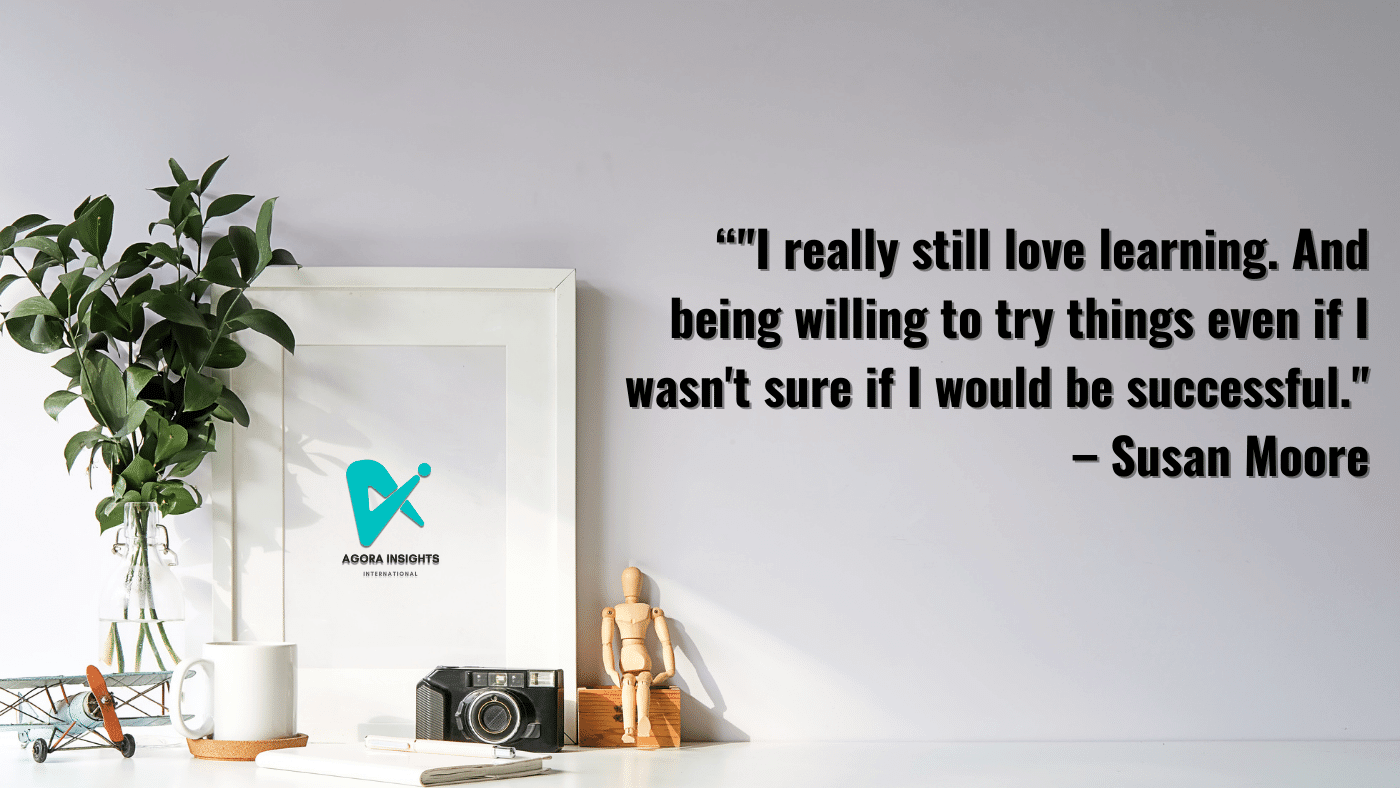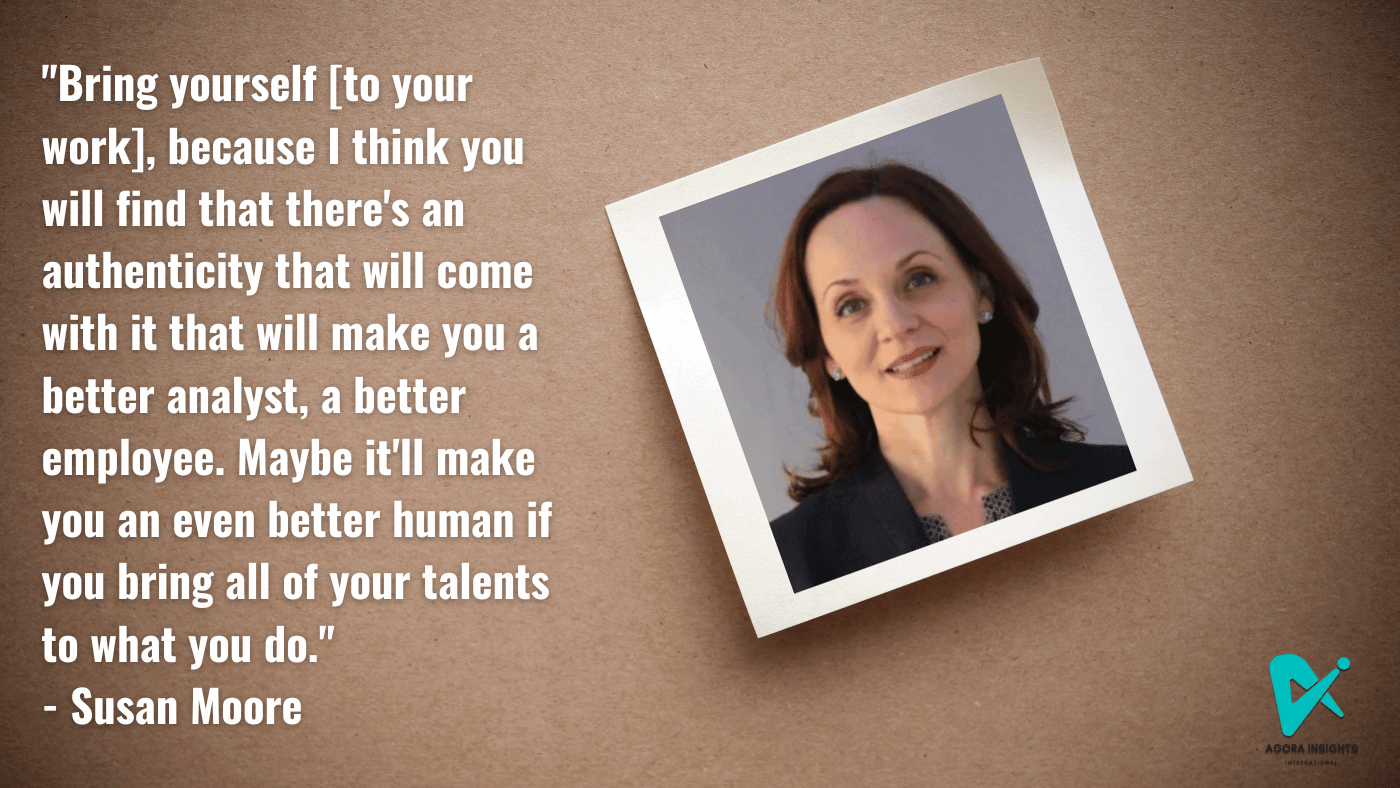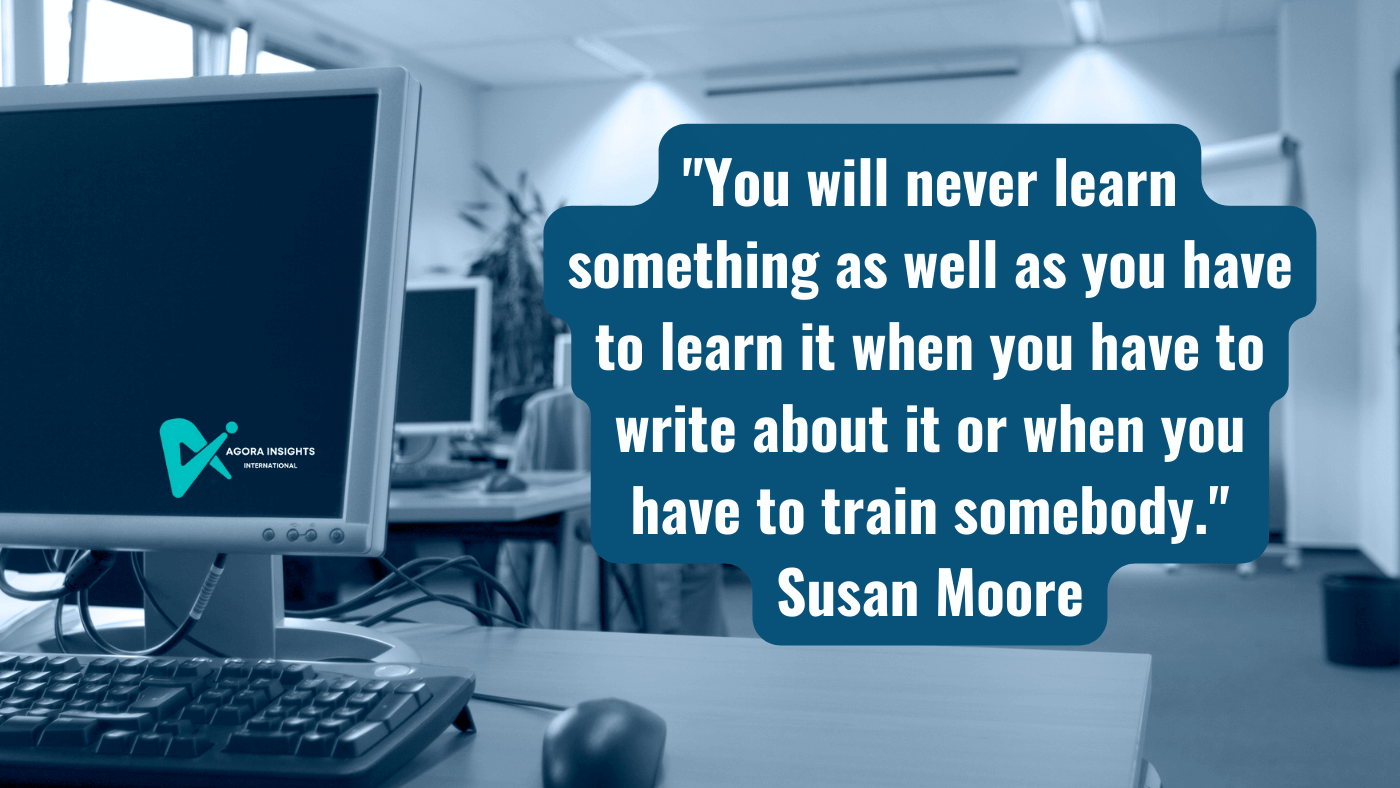I'm thrilled to have Susan Moore join us for episode 9 in our Blueprints for Success. In this session, Susan shares her rich tapestry of experiences that have shaped her career. Her journey into business analysis (ba) is a compelling narrative of exploration and discovery, one that underscores the notion that career paths are rarely linear. Susan's initial journey into paralegal, film direction, and art history may seem disparate at first glance, but they come together into a fascinating prelude to her eventual passion for business analysis.
Background
Susan Moore's story is a fascinating one, particularly because it's not what you'd typically expect when you think about someone working in this field . Her education in "Bachelor of Arts, Radio, Television, and Motion Pictures" and "Adult Learning" might seem worlds apart from the logical, change-driven field of business analysis. Yet, it's this very diversity in her background that provided her with a unique perspective when she transitioned into this role.
What's particularly intriguing is how Susan stumbled upon her talent for business analysis. While working at a bank, she became the go-to person for helping her colleagues navigate computer systems. It was this informal role that highlighted her ability to not only understand complex systems, Business Architecture and more, but also to explain them in a way that was accessible to others. This is a cornerstone of what business analysts do: they demystify and bridge gaps between technical and non-technical stakeholders.
Susan's move into this dynamic field wasn't a result of a calculated career move; it was born out of a real-world need and her ability to fill it. It's a reminder that career paths aren't always linear and that staying open to opportunities—even those that seem unrelated to your current skills or interests—can lead to rewarding and unexpected outcomes.
During the interview, it became clear to me that Susan's role as "Community Engagement Manager" for the IIBA brought her experience full circle.

3 Key Topics
Career Paths and Entry Points into Business Analysis
Reflecting on Susan's unexpected journey into the world of business analysis, it's clear that there isn't a one-size-fits-all approach to entering this profession. Her story is a powerful example that highlights the value of diverse experiences. It's fascinating to see how her background in the arts and her hands-on problem-solving skills with computer systems paved the way for a successful transition into business analysis. This should encourage individuals who may not have a traditional IT or business background to consider a career in this field. It's about leveraging whatever unique skills and experiences you bring to the table and applying them to solve complex business problems.
The Importance of Business Analysis in Organizations
Susan's emphasis on the critical role of business analysts in driving change is spot on. We're not just there to document requirements or to tick off boxes. Our role is to be the catalyst for innovation and to ensure that change is managed effectively. We're the bridge builders, connecting different parts of the organization, and ensuring that everyone is aligned with the overall strategy. It's a complex role that requires a deep understanding of both the business and the people within it. We're there to ask the right questions and to challenge the status quo when necessary. It's about being the glue that holds the various pieces together during times of change.
The Evolution of Business Analysis and Future Trends
The conversation with Susan also touched on the dynamic nature of Business Analysis and how it's evolving with advancements in technology. Specifically, the role of AI in BA was a topic of interest. It's clear that AI will change the way we work by automating certain tasks, but it won't make the human element obsolete. Instead, it will free up Business Analysts to focus more on strategic decision-making and interpreting complex organizational data. Understanding and leveraging AI and other emerging technologies will be crucial for business analysts to stay relevant and continue adding value to their organizations.
10 Key Learning Points:
- There is no single entry point into the business analysis profession; diverse backgrounds can lead to success in this role.
- Business analysts are essential in helping organizations navigate change while maintaining operational continuity.
- Business analysis is not just about producing requirements; it's about facilitating communication and change.
- The business analysis role is multifaceted, requiring a balance of technical skills and stakeholder engagement.
- Building trust and relationships is a critical aspect of effective business analysis.
- Business analysts must be adept at working with a variety of people, including those who may be resistant to sharing information.
- This field is expanding, with many unique job titles and specializations emerging.
- Business analysis skills are life skills that are applicable in many contexts beyond the workplace.
- Being part of a professional community and engaging in continuous learning is vital for career growth.
- The future of business analysis will likely involve more strategic roles and deeper integration with AI, but the core skills of analysis and decision-making will remain invaluable.
Close
Reflecting on this session, it's evident that the field of business analysis benefits from such diversity. The infusion of different backgrounds not only enriches the profession but also expands the problem-solving toolkit available to organizations. Susan Moore's path may have been unorthodox, but it's precisely this non-conformity that has allowed her to excel as a business analyst and now as a thought leader, speaker, and presenter in the industry. Her journey is a compelling narrative that encourages us to embrace the unique collection of our experiences, as they may just be the key to unlocking our potential in unexpected arenas.
I trust that you too have enjoyed this conversation and that it has inspired you to further your learning! Don't forget that Agora Insights truly guides learners to success! Let me know in the comments anything that resonated with you and any questions you have in mind.
Feel free to share in our Blueprints for Success Podcast or comment with any questions!

To get weekly videos and interviews from leaders around the world subscribe to our Blueprints for Success Newsletter on LinkedIn
Interested in business architecture and business analysis certification and corporate training? Visit our CBAP page
Learn more about Susan
Susan Moore is the Community Engagement Manager at IIBA. Before that, she was a business analysis professional with more than 20 years’ experience in finance, insurance and utilities industries working on both the Business and IT sides of organizations. Susan speaks frequently on business analysis-related topics such as career development, essential skills, and virtual communication. She writes about these topics (and more!) at TheVirtualBACoach.com. Susan holds IIBA’s Certified Business Analysis Professional (CBAP) and Agile Analysis Certification (AAC) in addition to other business analysis and agile certifications.
Articles:
What it takes to be a leader in Business Analysis?
The Virtual BA Coach
Susan's LinkedIn
Post sponsored by Agora Insights Ltd




Post a Comment